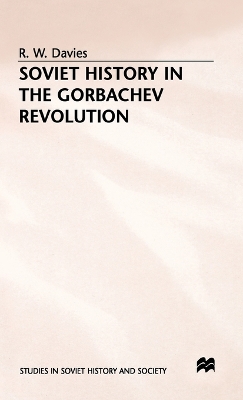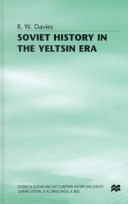Studies in Russian and East European History and Society
3 total works
Since Gorbachev took office in 1985, every aspect of the Soviet past has been under scrutiny. Tens of millions of Soviet citizens are eagerly absorbing and debating the vast outpouring of novels, books and articles, and films and TV programmes, about their past. Much new information has appeared, often sensational, about how the Stalin regime worked and what it meant for top politicians, generals, intellectuals and ordinary citizens. Stalinists, Russian nationalists, democratic socialists and others are locked in bitter debate. Was the victory of Stalinism inevitable? Was there an alternative road to socialism? Even Lenin and his policies are now questioned. The Politburo itself is deeply divided about how far the debate should go and what conclusions should be drawn from it. The reconsideration about the past is part of the discussion about the way forward for Soviet society: how big should be the role of the market? How much freedom and democracy?
Soviet History in the Yeltsin Era
by Robert William Davies and R. W. Davies
Published 23 February 1997
Russian rethinking of the past has immense political significance. The author of the acclaimed Soviet History in the Gorbachev Revolution now examines the impact of the collapse of Communism and of the subsequent disillusionment with capitalism on Soviet history. The uses of history after the 1991 coup and in the 1995 and 1996 elections are considered in detail. Part two evaluates the unfinished revolution which has partly opened the archives, while part three offers reflections on the future of the Soviet past.


